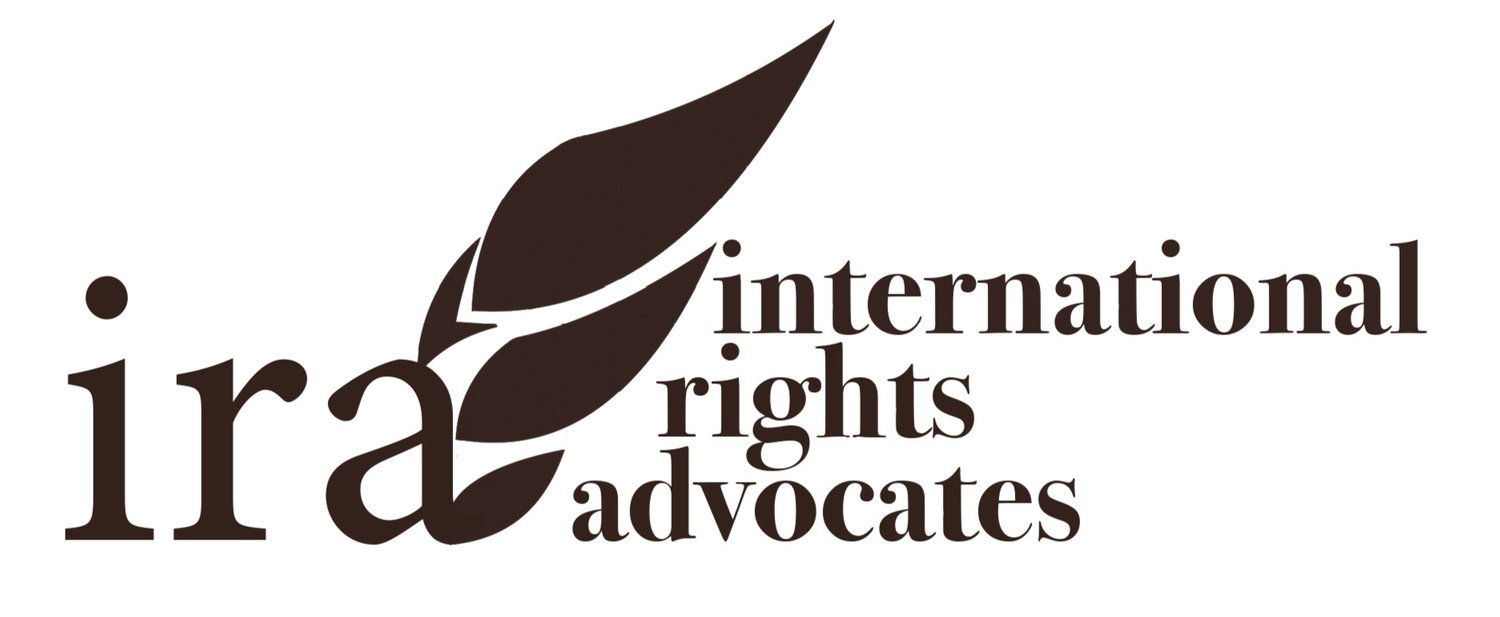Supreme Court Hears Oral Arguments in DaimlerChrysler
Written by Allison Kole, Law Student at George Washington University School of Law
Background
Last Tuesday October 15th, the Supreme Court heard oral arguments in the Daimler Chrysler AG v. Bauman case. This article gives a background of the case and a summary of oral arguments. Appearing before the court were Thomas H. Dupree, Jr. for petitioner, DaimlerChrysler; and Edwin S. Kneedler, Deputy Solicitor General, Department of Justice for United States, as amicus curiae.; and Kevin Russell for respondents. In 2004, the case was brought by IRAdvocates who also joined Russell on the brief submitted to the Supreme Court.
The plaintiffs are surviving relatives of those who were disappeared, or individuals who were themselves kidnapped, detained and tortured because of their efforts to organize labor at the Mercedes Benz Argentina plant. Bauman and twenty-two Argentine citizens or residents want to hold Daimler Chrysler AG’s subsidiary accountable for allegedly using state security forces to rid its plant of left-wing sympathizers during Argentina’s “Dirty War” where approximately 30,000 individuals were kidnapped, tortured, and disappeared at the hands of military and police forces. Certiorari was granted in April 2013 in order to resolve whether the state of California could exercise jurisdiction over DaimlerChrysler in a case involving Alien Tort Statute and other common law claims.
The Ninth Circuit found that California, under its long-arm statute, had general jurisdiction over both the subsidiary and parent corporation. Both entities shared the same chairman; the subsidiary sold cars solely for the parent company; the parent company set prices for the cars and had authority over virtually all aspects of the subsidiary’s operations; and all profits went to the parent corporation. Daimler in its petition to the Supreme Court argued that it violates due process for a U.S. court to exercise general in personam jurisdiction over a foreign corporation based on the activities of its subsidiary in the U.S.
The Supreme Court agreed to take on DaimlerChrysler just days after its decision in Kiobel where it denied that the Alien Tort Statute provided jurisdiction for foreign citizens charging violations of international norms on foreign soil by a foreign company. Daimler’s subsidiary, Mercedes Benz USA, sells its cars in California where the case was brought and Daimler merged with the U.S. company, Chrysler Corp. in 1998. Commentators believed that the Supreme Court took this case to help illuminate what kind of U.S. connection would be enough to support an Alien Tort Statute claim as well as how far as state can reach to assume jurisdiction over a company with its activities mostly located elsewhere. The later question was the focus of the Justices’ questions in the oral arguments described below: can a court in California exercise jurisdiction over a foreign company based on the fact that a subsidiary of the company acts on its behalf in the forum state?
Oral Arguments
News coverage in the days after oral arguments describe the courts reaction to the idea that DaimlerChrysler AG could be held accountable in U.S. Federal Courts as “skeptical.” An audio recording and transcripts of Oral Arguments can be found here.
Petitioners: DaimlerChrysler AG
Counsel for Daimler, Mr. Dupree asserted that to attribute contacts of the subsidiary, Mercedes, in California to Daimler as a means to obtain jurisdiction, violates due process because Mercedes is a separate corporation respecting all corporate formalities and is not an alter ego of Daimler. Chief Justice Roberts challenged Mr. Dupree’s argument that California’s attempt to assert jurisdiction was limited by due process concerns.
CHIEF JUSTICE ROBERTS: There's nothing in the Constitution, is there that would prohibit a State from adopting a rule that a parent is responsible for any acts of a wholly-owned subsidiary?
MR. DUPREE: Well, Mr. Chief Justice, there may be a constitutional limit; certainly to the extent that, say, California adopted a rule that said for purposes of some sort of liability, we are going to disregard the corporate forum, I think that could pose due process concerns to the extent that it is purporting to override, say, the corporate law of Delaware.
Justice Sotomayor pointed out that in Container Corp., the Court permitted California to tax a parent California corporation in contravention of Delaware corporate law, but Mr. Dupree replied that tax cases typically have a lower due process standard than personal jurisdiction cases. Besides, he claimed, California respects the corporate form in liability questions, and it was error on the part of the Ninth Circuit to deviate from this norm with respect to personal jurisdiction. Justice Ginsberg throughout oral arguments pointed out that any assertion that the subsidiary Mercedes was not subject to general in personam jurisdiction was waived. In light of this, Petitioner advocated for a standard where they would only be subject to jurisdiction if the court finds that the subsidiary is the alter ego of the parent:
JUSTICE ALITO: If we agree with you -- if we agree with you that the test should be whether the subsidiary is an alter ego of the parent, would that depend on the -- the law of the particular State in which the suit is brought or would it be based on some general understanding of alter ego liability?
MR. DUPREE: Justice Alito, I think the best test would be to look to State law for guidance, precisely because that is the law that commercial actors throughout our country typically would look to, to determine whether or not they might be in a veil-piercing situation.
Mr. Kneedler, arguing on behalf of the United States in support of petitioners urged the court to look at the principles of corporate law, which “corporate separateness” is a general rule in that a parent is not liable for the acts of a subsidiary. He notes that exceptions to this general rule, not pleaded here, are the “alter ego exception, and the situation where a principal is responsible for the acts of an agent.” Under those exceptions, he asserts, attribution of jurisdiction to the parent, Daimler would not offend traditional notions of fair play and justice under the due process clause. Justice Sotomayor discusses the idea of whether Mercedes (MBUSA) is an agent of Daimler, and therefore, whether this case fits into an agency exception.
MR. KNEEDLER: Well, I -- under this agreement, MBUSA is -- acts independently. It does not act day to day directly.
JUSTICE SOTOMAYOR: It seems an odd thing to say given the page and a half that the lower court went through on the various ways in which Germany controls this subsidiary. It appoints all its officers. It approves all its operating procedures. It approves all of the people it hires and fires. It seems like there isn't much left for what -
CHIEF JUSTICE ROBERTS: I don't think there was a question, but you can respond.
(Laughter.)
MR. KNEEDLER: Those are contractual undertakings. They are not the manifestations of agency. Agency would require that -- that Daimler control the day-to-day operations of this subsidiary. And at page 116A of the petition appendix, the district court says there's no evidence of that whatsoever.
Respondents: Bauman
Mr. Russell arguing for Respondents asserted that despite discussions of specific jurisdiction, agency, and corporate veil-piercing the issue in this case, litigated already for eight years, is if Mercedes contacts in California were attributed to Daimler, would those contacts would be sufficient to support general jurisdiction over Daimler itself. Respondents are not asserting that Mercedes was an agent of Daimler but that that Daimler can be considered at home in California for the purposes of establishing general jurisdiction:
MR. RUSSELL: That's right. But the -- but that I think we need to separate the two ideas of what does it take to make Petitioner at home in California. Once it's established that it is at home in California, it is simply a traditional aspect of general jurisdiction that it will be subject to suit for things that happened abroad. If this suit had been brought against Apple Computer, which is headquartered in California, I don't think we would be here today. The question here is whether the -- the conduct in California is rendered insufficient by virtue of the fact that it was undertaken by a subsidiary.
An exchange with Justice Breyer outlines the potential actions by the court instead of, as Mr. Russell described, using the forum of the Supreme Court as a “Get Out of Jail Free Card.” Justice Breyer and Scalia discuss the issue through the lens of corporate law and whether California is saying that corporations cannot insulate themselves from liability in that state. In response, Russell pointed out that that issue is not preserved in the record, and if the court thinks that the resolution turns on that issue it should dismiss the case as improvidently granted or decide the case on the assumptions upon which it's been litigated. Justice Breyer highlighted another option:
JUSTICE BREYER: Well, another thing we could do is we could say we've decided now two cases that seem to bear on this, and one is Goodyear and the other is Kiobel; and we could say we'll send it back for consideration of this case in light of those.
MR. RUSSELL: We would have no problem with that if you made clear that it was open to us under remand to argue that they didn't preserve these arguments. That would be a fine result for us.
Justice Kagan asked how Daimler could be subject to general jurisdiction for through a subsidiary that does only 2.4 percent of its sales in California. Mr. Russell stated that a corporation should be better off because of the size of its business, and that the issue of whether Mercedes did “enough” business can only be raised on remand. Chief Justice Roberts did ask Mr. Russell one question with regard to Kiobel:
CHIEF JUSTICE ROBERTS: You mentioned Kiobel. Do you still think you have a viable claim under Kiobel, or haven't you conceded that?
MR. RUSSELL: We are not prepared to concede that at this point, although we recognize we have an uphill struggle to fit ourselves within the exception that's been left. Principally, our argument would be based on the fact that at the time of suit, this was a dual American/German company with dual headquarters in -- in the United States, which is different than Shell. But we're not prepared to concede it, but we're not asking this Court to resolve it.
The above excerpts highlight the core of Respondents arguments, but many additional escape routes for Daimler were outlined by the justices during Russell’s time before the court. For instance, the Court questioned whether there were sufficient links between Daimler and Mercedes, and Justice Kagan voiced her uneasiness with the prospect that following the Respondent’s argument that every corporation anywhere in the world would be subject to suit in any state where it had even loose ties. Justice Sotomayor signaled that any of the suggestion by the Justices during oral arguments, including a reasonableness test could lead Daimler to prevail. “Do you care how you win?” she asked Mr. Dupree on rebuttal. The Court must now decide if will be remanded or if the unresolved issues, as Respondents describe them, can be resolved summarily by the Court.

